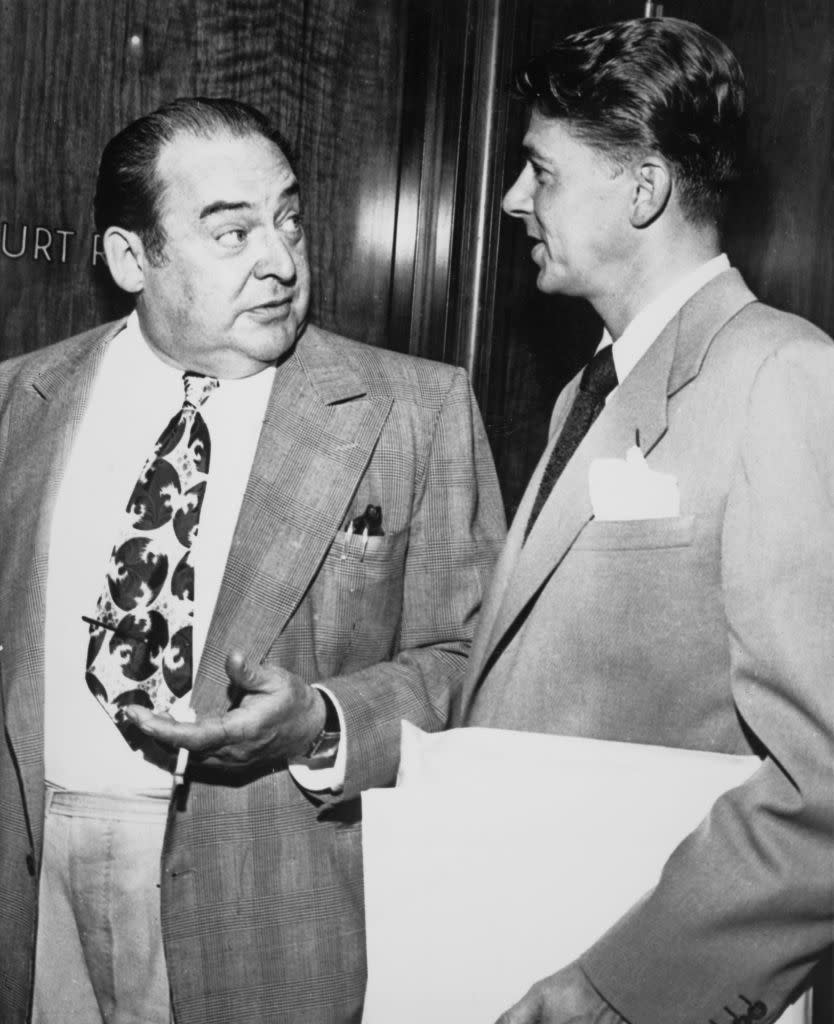The Last Time Writers and Actors Went on Strike at the Same Time, Ronald Reagan Was SAG President

- Oops!Something went wrong.Please try again later.
"Hearst Magazines and Yahoo may earn commission or revenue on some items through these links."
In a weird twist of history, the last time actors went on strike at the same time as writers, Ronald Reagan led the strike.
Reagan, who was an actor and a Democrat before he was a Republican politician, led the Screen Actors Guild (SAG) from 1947 to 1952. Then, in 1959, as SAG was negotiating with movie studios, he returned to helm the actors' union—and led them in a strike, which was a "double strike" as SAG and the Writer's Guild of America (WGA), the writer's union, were on strike at the same time.
As screenwriter C. Robert Cargill tweeted ahead of the current double strike, "To give you a context of how historic a WGA/SAG strike would be, the last time this happened together not only was Eisenhower still president, but the actors union was lead by noted organizer and socialist, Ronald Reagan."

Reagan returned to lead SAG because he was an "extremely effective leader of SAG in the late '40s," writer and actor Wayne Federman explained to Slate. "At that time, he was considered a liberal Democrat, but by the time he was brought back as SAG president to lead this strike, he had had a political conversion. … I don't think he was a registered Republican at that time, but he was certainly starting to lean that way. The membership liked him. They remembered that he had been this good union leader before, and when he was head of SAG in the early '50s, he helped get residuals for television actors [for reruns]."
Reagan authorized a strike, one that resulted in residual payments for films, among other victories for the union. The eventual deal in 1960 "was overwhelmingly approved by the membership," Iwan Morgan, author of Reagan: American Icon, told The Washington Post. "They were very keen to get back to work and make money." Morgan added, "He was a pretty good negotiator, there's no doubt about it. Reagan would later joke that negotiating with Mikhail Gorbachev, the Soviet leader, over arms reduction was nothing in comparison to having to negotiate with the studio heads." Morgan pointed out, however, that Reagan shouldn't have led SAG negotiations because at the time, he was also a producer—a conflict of interest. "There was a feeling from some of the old stars that Reagan had not pushed harder," he said.
Reagan resigned from SAG presidency in June 1960. Six years later, he would run for California governor, and win. By the 1980 presidential election, his union roots were not part of his political platforms. AFL-CIO President Lane Kirkland said at the time, "Ronald Reagan is no friend of working people. His past record proves that fact, and we must make sure that union members have the facts to match against the glib rhetoric." During his presidency, he was hostile to organized labor, notably firing striking air traffic controllers in 1981, which dealt a serious blow to the American labor movement.
You Might Also Like

